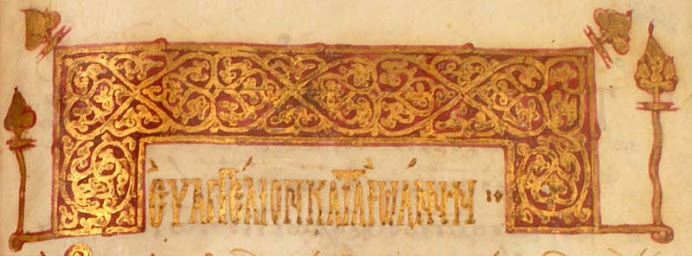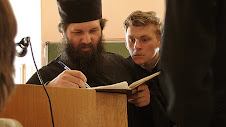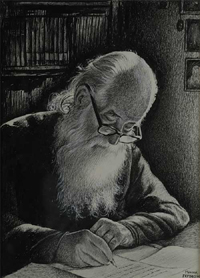
The Moral Idea of the Dogma of the Incarnation
3.a.The moral significance of the dogma is clearly demonstrated from the negative approach described in the previous section. In order to avoid describing our moral life according to its own essence, rather than demonstrating the influence of faith in Jesus Christ as God upon it, we will expound its principal conditions with the words of Kant.
b. Kant sought to demonstrate that the Gospel can bring just as much benefit to those who deny Christ’s miracles and revelation as to believers, though failed to do so. In referring to his teaching on redemption and salvation, we will describe what Kant believes to take place in a person when he decides to dedicate himself to attaining moral perfection.This will show without difficulty that this is possible only with faith in Christ as God.
c. Kant taught that the transformation to good cannot take place without pain. The feeling of an inner discord and regeneration causes suffering which is all the more tormenting when those evil inclinations of the will which are being destroyed have put down deep roots in the nature of a person and turned into habit.
d. Suffering is repulsive to a natural person. The Gospel blesses those who are dishonored and demands that one renounce oneself, that one despise one’s life. The Gospel foretells woe to the wealthy and satiated. But what will rouse us to defy our self-loving nature?
e. Kant replies that there are principles which correspond to truth and good within one. But if one acts for the sake of obedience to the voice leading towards good, then one must also submit oneself to depraved passions when their demands run upon my conscience.
f. Kant writes: “we must imagine that it has already been truly realized; and then, without difficulty we will be inspired by this beautiful image which will be fore each of us, and consequently for all of us, a true savior.” For Kant, therefore, it is enough merely to find an inspiring example.
b. Kant sought to demonstrate that the Gospel can bring just as much benefit to those who deny Christ’s miracles and revelation as to believers, though failed to do so. In referring to his teaching on redemption and salvation, we will describe what Kant believes to take place in a person when he decides to dedicate himself to attaining moral perfection.This will show without difficulty that this is possible only with faith in Christ as God.
c. Kant taught that the transformation to good cannot take place without pain. The feeling of an inner discord and regeneration causes suffering which is all the more tormenting when those evil inclinations of the will which are being destroyed have put down deep roots in the nature of a person and turned into habit.
d. Suffering is repulsive to a natural person. The Gospel blesses those who are dishonored and demands that one renounce oneself, that one despise one’s life. The Gospel foretells woe to the wealthy and satiated. But what will rouse us to defy our self-loving nature?
e. Kant replies that there are principles which correspond to truth and good within one. But if one acts for the sake of obedience to the voice leading towards good, then one must also submit oneself to depraved passions when their demands run upon my conscience.
f. Kant writes: “we must imagine that it has already been truly realized; and then, without difficulty we will be inspired by this beautiful image which will be fore each of us, and consequently for all of us, a true savior.” For Kant, therefore, it is enough merely to find an inspiring example.
- What is the significance of Metropolitan Anthony’s use of Kant in his argument?
- What in fact is the argument that the Metropolitan is making?









3 comments:
1. Kant, of course is the main protagonist, and the one from whom Tolstoy, Renan and the Tubingen school receive their ideas. Kant is there foundation and Met. Anthony considers him to be the "most impartial" and "incomparably more convincing" than any of his contemporaries. Therefore in chipping away at the very cornerstone, Met. Anthony seeks to over turn Kant's theory and show the grounding of what he is proposing.
2. Met. Anthony's argument is that although he will agree with Kant that the "process of regeneration" is painful" there are more valid reasons for it to be so other than Kant's imaginings. The Metropolitan gives Christian answers for why this is so. The inspiration that Kant offers to endure this suffering is imaginary - "we must imagine that [moral perfection] has already been truly realized." Met. Anthony, in tongue-and-cheek fashion says, "See how easy it is to be saved in the fantasy of the German philosopher."
Matthew
Metropolitan Anthony uses two terms without exactly defining them but here is how I am defining them:
Negative approach – beginning with virtue and establishing dogma;
Positive approach – beginning with dogma and establishing virtue.
The Metropolitan applies the first term to Kant, and his successors, and the second is how he describes his approach.
Also of note is the very interesting word “perfectionment.” I thought it might be more proper for it to be “perfecting” in the present continuous tense. Nonetheless, the “free dictionary” defines “perfectionment” as “The act of bringing to perfection, or the state of having attained to perfection.” I see my Word program doesn’t accept “perfectionment” as a proper term. I guess I’ve learned a new word today.
Matthew
These are some great tools that i definitely use for SEO work. This is a great list to use in the future..
moscow analysis
Post a Comment